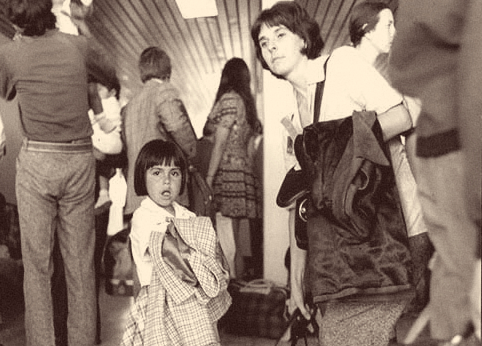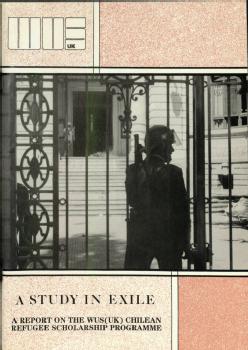Voices of Humanitarianism: British Responses to Refugees from Chile
Voices of Humanitarianism: British Responses to Refugees from Chile
How did British people respond to the plight of Chileans fleeing persecution after President Augusto Pinochet’s 1973 coup? What were the experiences of the approximately 3,000 Chileans who came to the UK? How do they now remember the welcomes they received across the country? How can we spread this story through the use of drama and art?
Professor Alison Ribeiro de Menezes currently holds an Arts and Humanities Research Council Fellowship to explore the plight of Chilean refugees who fled the country after the military coup of September 1973, when the Chilean Armed Forces overthrew Salvador Allende's government. Pinochet’s regime was one of a series of violent dictatorships in the region.
She is working with Dr Veróncia Díaz Cerda, postdoctoral researcher on the project, and with the London physical theatre group Ephemeral Ensemble, who have developed REWIND, a performance about repression and resistance in Latin America. You can watch the trailer here.
Between the mid-1970s and the mid-1980s, approximately £11million (the equivalent of £110million today) was assigned to the rescue of Chileans from political persecution. World University Service (WUS) was important in this process, working with groups including the Joint Working Group for the Resettlement of Refugees, Chile Solidarity Campaign and Chile Committee for Human Rights.
Almost 3,000 refugees came to the UK as a result of these and other efforts, although approximately half were later able to return home.

A Chilean mother and daughter prepare to leave Santiago after the military coup.

A Study in Exile: A Report on World University Service's Chilean Refugee Scholarship Programme, 1986. The programme assisted 900 Chileans to complete or continue their education.
The role of late 20th century British humanitarianism
The Voices of Humanitarianism project aims to illuminate late 20th century British humanitarianism at a pivotal moment towards the end of the Cold War, as well as offer a rare opportunity to build an internal history of – and give voice to – the wide range of actors, agents and recipients involved in that work.
The research will examine a period of UK activism in support of refugees, together with an oral history of Chilean exile. Interviews with both first- and second-generation Chileans will shed light on understandings of identity and belonging among former refugees and their children who grew up far from Chile.
Drawing on both narrative analysis and a focus on material cultures, the project aims to develop a cultural studies approach to humanitarian history.
Building on Professor Ribeiro de Menezes’ AHRC network project on Chilean exile and continuing her close collaboration with the Museum of Memory and Human Rights in Santiago, Chile, the research will seek to recover the voices of both the recipients and agents of humanitarian support and offer a detailed understanding of their historical agency. Alan Phillips, former general secretary of WUS, was a key advisor to the research until his recent death; please see Alison's memorial note.
You can learn more about the WUS programme to support Chileans at risk in this video (EnglishLink opens in a new window and with Spanish subtitlesLink opens in a new window).
Listen to an interview relating to Chilean exile, with Prof. E del Toro, who spent time studying at Warwick here.
Read Verónica Díaz-Cerda's latest publication from the project, on childhood memories, here.
Public Engagement: REWIND by Ephemeral Ensemble
As part of her research on repression and resistance in Chile and Latin America more broadly, Alison has collaborated with Ephemeral Ensemble to develop the performance, REWIND (REBOBINAR in Spanish). To date, it has toured the UK (Warwick, Coventry, Liverpool, Sheffield), Colombia (Bogotá, Cali) and Chile (La Serena, Santiago). In August 2023 REWIND will be at the Edinburgh Fringe festival, at Summerhall, which has created the 'REWIND award' for work that deals with stories of decolonisation. Named after our show, we are its foundational recipient. You can read about this honour here.
REWIND invites you to witness the investigation of a crime, which slowly reveals Alicia's identity, a woman who dared to resist agains authoritarianism. REWIND combines the science behind Forensic Anthropology with fact-based stories of resistance, to create an emotional and atmospheric experience evoked by vibrant physical theatre, powerful live music and striking visuals.

REWIND is inspired by testimonies of refugees whose lives were affected by dictatorship in the 70's in Latin America and young adult migrants whose lives have been affect by human rights abuse in Latin America in 2019-2021. Forensic Anthropology is a science but also an act of resistance. Their methods of investigation were evolved in Latin America to find forced disappeared people during military dictatorship period. through the analyses of injures on bones, the science led a revolution in how human rights are investigated.

